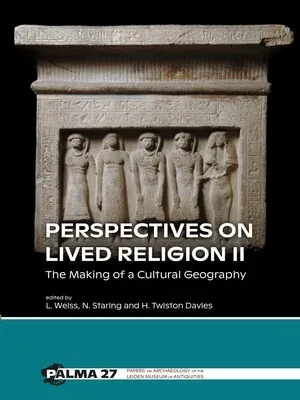Ancient Egyptian elites invested immense cultural and economic efforts
in preparing for their afterlives. However, the diversity of choices
open to them is often overlooked. These choices included tomb size, tomb
location, and architectural design, as well as tomb decoration, and the
selection of certain grave gifts. Their choices depended on financial
means, but also on contemporary fashion, among other factors. Ancient
sites were visited by the living to commemorate and rejuvenate human
ancestors and the gods, as individual acts or as part of large-scale
processions. They also visited cemeteries because of new building
activities, or to visit already-ancient monuments. The daily
interactions of the living with their ancestors and gods are traceable
in the evidence of lived religious practices, the transmission of texts
and images, and the processes which shaped the landscape. Older
monuments and stories remained accessible, and the ongoing use of the
site created a palimpsest landscape, showing the results of millennia of
human activity. These results of past activities could hold special
significance for later generations, but new meanings often supplanted
older interpretations.
Building on the success of Perspectives on Lived Religion, Perspective
on Lived Religion II presents the results of a conference held in Cairo,
September 29th - October 1st 2019, and kindly funded by the Dutch
Research Council (NWO) Vidi Talent Scheme, as part of the Leiden
University research project "The Walking Dead at Saqqara: The Making of
a Cultural Geography". The papers presented here are written by both
well-established and more recent Egyptologists, and examine examples of
human agency at various sites in ancient Egypt, such as Saqqara, Thebes,
Abydos, and Pi-Ramesse. These case studies examine which traditions were
followed, disputed, and negotiated by whom and where in ancient Egypt,
as well as discussing the modern perception of some of these traditions.

